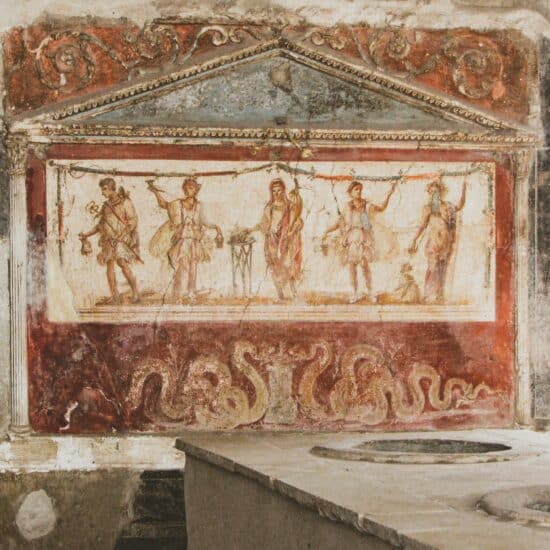 A Living Sacrifice
A Living Sacrifice
Formations: March 31, 2019
Scripture: Romans 12:1-5, 9-21

Michael K Olmsted
Paul speaks eloquently about the meaning of the cross and resurrection. He delves into the Old Testament promises of the Messiah, and points to the indwelling presence of the Holy Spirit in those who commit life to Christ. But Paul, the theologian, is also the pragmatist who applies faith to the practice of being God’s people in the real world. He finishes Romans 11 with words that may be sung as a hymn of salvation: “O the depth of the wisdom and knowledge of God! For from him and through him and to him are all things. To him be the glory forever” (11:33-36).
Abruptly Paul turns to what all that beautiful powerful language is about: “Therefore, brothers and sisters, by the mercies of God, present your bodies as a living sacrifice, holy and acceptable to God, which is your spiritual worship” (12:1). “Therefore” is the connector, the necessary fulfilling transition to all you can be in Christ and how you must live. I read this chapter at the beginning of my life in Christ and have never forgotten, through years of ministry in little and big churches across America, in times of both hardship and joy, that the way I live each day is an act of “spiritual worship.”
Consider how Paul’s life unfolded as he followed God’s leading across the Roman Empire, enjoyed exhilarating successes and faced threats to his life. Since we are being made in the image of God, we face choices daily. That means we repeatedly must make the decision to present our body as a living sacrifice, which requires a learning that only comes as “our minds are transformed.” In Ephesians 2:4-13 Paul describes the spiritual change God creates in us: “For we are his workmanship, created in Christ Jesus for good works, which God prepared beforehand, that we should walk in them” (2:10).
The specifics of what it means to live out “spiritual worship” are clearly presented. It is a Christian lifestyle offered in the context of a relationship with other believers. Your mind must be renewed by God’s grace so you can “discern the will of God” (v. 2). How has God’s grace changed your value system, altered your ideas about revenge and judgment, enabled your acceptance of people who are different or empowered you to overcome adversity?
We are all members of the body of Christ, but we are as different as the various “members” of the human body. (See 1 Corinthians 12:1-14.) In Romans 7:23, Paul uses the same word for “members” to describe sin being at war in the “members” of his body. Here he broadens that image as the church is composed of “members” making up the whole. We are related to one another in Christ, so we impact and influence the body or church in the world. Because we are all “members” of the body of Christ in this world we should practice humility and “not think of (ourselves) more highly (than others)” (v. 3).
Paul’s words cascade: “love one another with mutual affection, outdo one another in showing honor … be ardent in spirit, serve the Lord … rejoice in hope, be patient in suffering, persevere in prayer … contribute to the needs of the saints, extend hospitality to strangers … bless those who persecute you … live in harmony … do not associate with the haughty, but associate with the lowly … do not repay evil for evil … take thought for what is noble in the sight of all” (vv. 10-17). “If it is possible, so far as it depends on you (we don’t always have control), live peacefully with all (v. 18). Vengeance is forbidden and left to God alone (v. 19). An exhausting list which depends on the strength and guidance of the Holy Spirit!
But Paul is not finished. We are not serving Christ by withdrawing from the world’s challenges. He concludes: “if your enemies are hungry, feed them; if they are thirsty, give them something to drink; for by doing this you will heap burning coals on their heads” (v. 20). The “burning coals” image is not destruction, but a stinging realization that their attitudes are self-destructive. It’s similar to our old saying about someone’s attitude: “They would cut off their nose to spite their own face!”
The theme that resonates throughout Paul’s list of attitudes and actions that we should nurture as members of the body of Christ is “let love be genuine” (v. 9). How is it possible for us as fallible human beings to begin living a Christ-like life in this world?
Focus on Paul’s opening words: “present your bodies as a living sacrifice … which is your spiritual worship” (v. 1). You are not perfect, but you are loved and forgiven. You cannot live above or beyond the challenges of this world, but you can be faithful by the power of God’s grace and the help of the Holy Spirit. Therefore, grow in grace and “overcome evil with good” (v. 21).
Formations is a curriculum series from Smyth & Helwys Publishing, Inc. through NextSunday Resources.
The PDF download requires the free Acrobat Reader program. It can be downloaded and installed at https://get.adobe.com/reader (uncheck optional offers first).



